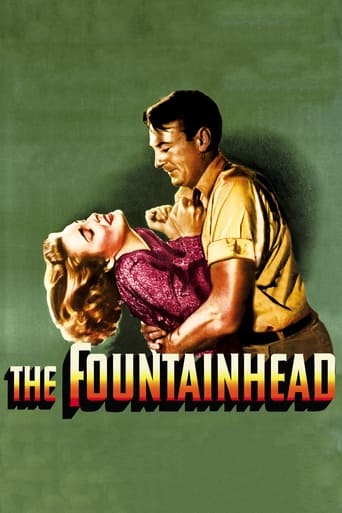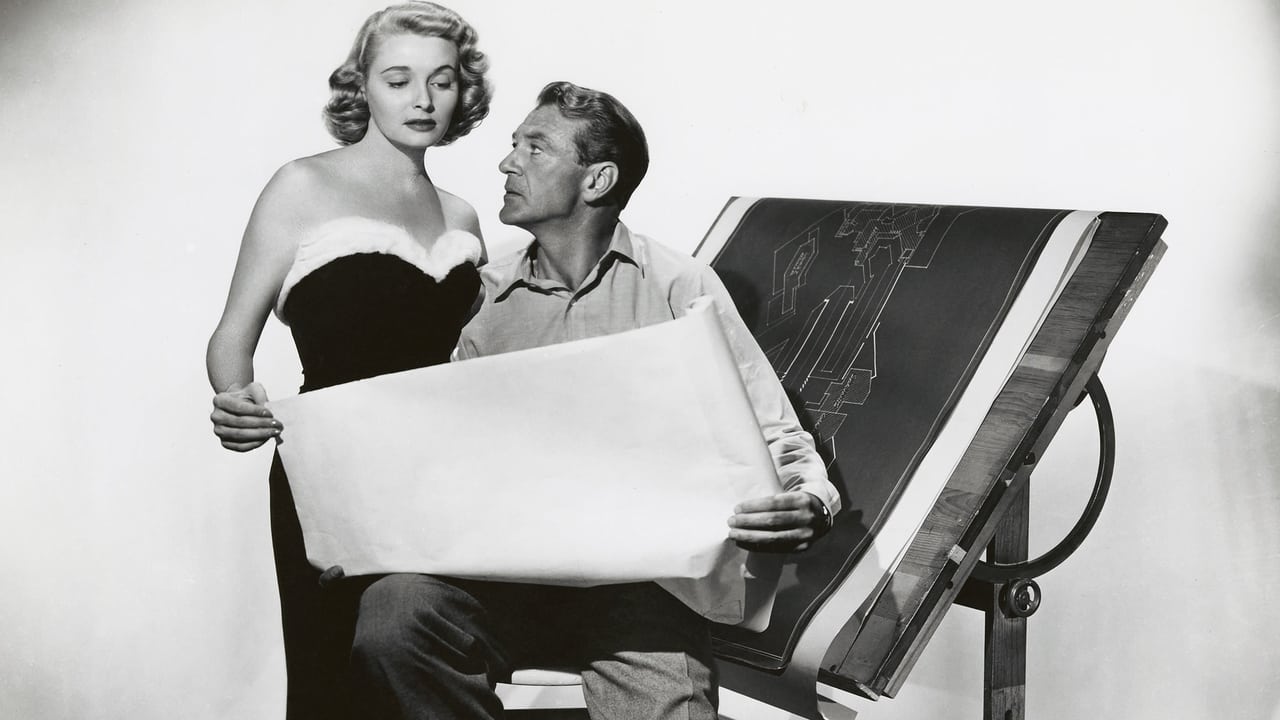joe-pearce-1
There are over 200 reviews here, almost every one of them disagreeing in one way or another with the other 200 or so. This is that kind of film! Cooper is brilliant, Cooper is awful; Neal is ridiculous, Neal is too sexy or intelligent to live; it is Massey's best role, how could Massey have been induced to take it?; the screenplay is over the top, doesn't make any sense, makes sense only to people with high IQs, couldn't possibly appeal to an unreconstructed idiot; the music is overwhelming, the music is bottom-drawer Steiner; it is a director's film, the film resists any attempt at direction; the photography is fantastic, it is fantastic that anyone can consider this photography. And on and on it goes. Much to my chagrin, I agree with everybody's opinion. As I said, It is just that kind of film! Which is what makes it one of my favorites, and one I return to every few years. I have done so again.So, this is my take on it. This is one of the most wonderfully overblown films based on a famous novel that I have ever seen. The four leading characters - played by Gary Cooper, Patricia Neal, Raymond Massey and Robert Douglas - are so far beyond the pale that they seem like visitors to Earth from another planet, and not necessarily one you would want to visit in return. In reality, Cooper plays the most gigantically-imagined role of his career, and although there is no real change in his laid back acting style from 40 or 50 other films (it was said that he once played a scene next to a Cigar-store Wooden Indian, and that the critics accused the Indian of overacting!), somehow the greatness of the character seeps through and you really believe him. (Supposedly, Cooper was late-in-life John Barrymore's favorite screen actor.) Patricia Neal, unbelievably only 22 when this was filmed, plays a woman who appears to have an IQ of about 180 and an emotional desperation almost as great, one who seems to have lived a huge life before every laying eyes on Cooper; it is not a well-written role, but she plays it like Goneril passing through Lady Macbeth on the way to becoming Joan of Arc. Wonderful. How can you be that good at 22? Messy writing or not, this is probably Massey's best two hours on screen, because, at least for me, you can't take your eyes off him when he's there. And Robert Douglas, the late 1940's/early 1950's epitome of swashbuckling villainy (did he ever meet a sword he didn't like, a dagger he could not embrace?) is here once again the true villain of the piece, but one of an essentially non-physical and effete presence and delivery. All the other actors are as good, just not as noticeable. The photography and direction are the initial calling cards here. We do not ever get to see most of the architecturally grand buildings Cooper wants to build, or does start to build in time, but the views we do get of them on paper, in cardboard construct, in planning stages, or in distance shots, are so well lighted, photographed, angled, etc. that we can have no doubt that Cooper's character is just as great as he thinks he is. And make no mistake about it: Howard Roark is as certain of his purpose and as intent upon achieving it as anybody we have come across since Captain Ahab, and he's even tougher when confronted by opposition than is Ahab. Ahab at least believes in God, even if only as his non-swimming nemesis; I would posit that Roark believes in nothing in this world except Howard Roark. (Funnily enough, I would never have thought of Cooper for this role any more than I would have thought of Gregory Peck for Ahab. So why are you reading this, since I obviously don't know what I'm writing about?) As for the direction, I get the feeling that Vidor was probably overwhelmed by what he saw on the written page and just went with the flow, figuring that if the writer is delivering cosmic situations and dialogue and the actors are intent on playing them to the hilt, who is he to get in the way and prove himself cosmically challenged? So, there it is. I simply cannot explain my love for this film beyond a love for its total excesses in every category that means anything to me. The last film I saw that had this effect on me (granted, with cosmic dialogue in very short supply) was BURN AFTER READING. I had never seen so many 1s and 10s for the same film from IMDB reviewers, so it must have had either something to say to no one, or nothing to say to everyone. And that's pretty much what THE FOUNTAINHEAD says to me, but 60 years earlier. I will happily watch both films every couple of years until the trumpet sounds (maybe it did sound already, in both films, and I just missed it because all the kitchen sinks kept getting in the way!).
grz-98-880629
There are many ways to watch this movie, and the way you choose to watch it will tend to determine how you rate it. You might compare it to the book, or set it against a standard of expression for a philosophical idea. Or, you just might watch it absolutely for itself, in a sort of self-defined manner. Everything depends upon the standard of judgment.I admit that there were parts of this movie that seemed awkward or condensed from a story perspective. However, such as each his or her own, we tend to like a movie that hooks us, often by attaching to something inside ourselves. Something in the movie with which we identify.What I loved about the movie is the essential message: the man's own belief in himself was a stronger force than the attacks could break down. Make the man an outcast, ridicule him, take his money. Take away everything society offers. Then we see what makes the man. Such as it was for Socrates, Jesus, and many others. Take it all away and there is nothing left, but the man and the principle that the man holds. This is the integrity of the man, and it is what holds the man together, from the inside out, not the outside in.The strength of the many is not the truth, the strength of the many is simply the many. The truth can stand alone, naked, and all by itself. The less adorned, the more essential. All strength comes from the inside, that is the only true source of strength, and nothing is as strong if reliant upon an external.Roark listens to the kingdom that is inside of him, and he wins without ever attacking, simply by staying true to himself.
Syl
I have never read the book or any of Ayn Rand's literature. This film adaptation is strange because its more philosophical and literary than anything else. Everybody is giving speeches about beliefs and views. I don't get the meaning about Rand's work. The movie is about an architect, Roark, (played fine by Gary Cooper). He is unusual in his vision of building whether homes or skyscrapers. Patricia Neal plays his love interest. I just don't understand why Roark's visions were at odds with society. The film is long and not very entertaining overall. Ayn Rand may have been a brilliant philosopher but her storytelling is a lot to be desired.
chrisdcumber
Ironically by the 1960s Howard Roark would have been expelled from a school of Architecture if he didn't design in the Modernist style.This actually happened to me but I tried again in the 80s and had no problems passing my degree in architecture and went on to have a reasonable career.Have to say I now have an aversion to Modernism, it has since been proved rather ineffective as a building system and certainly very unpopular with real people who haven't been indoctrinated or even brain washed by the old schools of architecture.Not sure if this is general throughout the world but it was certainly the case in Britain, there are of course a few Modernist dinosaurs lurking in the undergrowth.


 AD
AD








